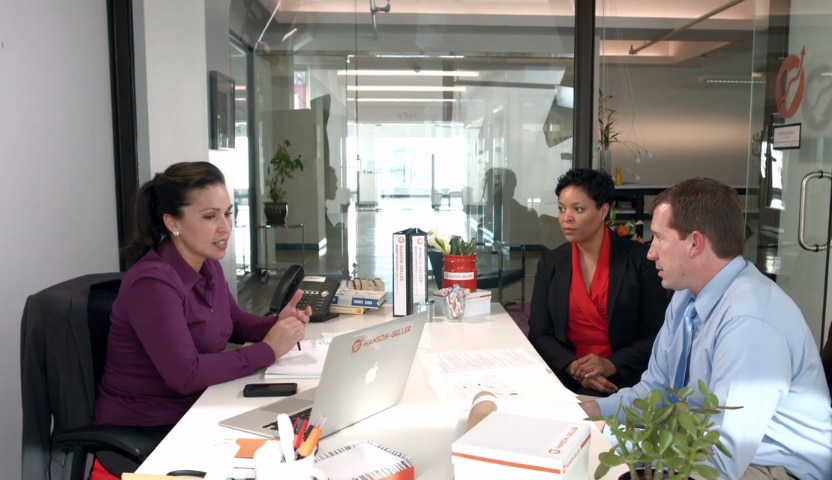Featured Collaborator for July & August: Hal Movius
 Interview with Hal Movius, president of Movius Consulting and senior consultant to The Consensus Building Institute
Interview with Hal Movius, president of Movius Consulting and senior consultant to The Consensus Building Institute
What are your main areas of research?
Lately I’m interested how we can help people to negotiate with greater emotional and behavioral confidence, without becoming cognitively blinded. There’s a fair amount of research on how judgmental overconfidence can worsen conflict, but very little on why most of us dread negotiating, even though it is a critical life skill. While there are self-assessment tools that people use to categorize their negotiating styles, these are largely useless because
- people don’t realize how powerful and varied situations can be, and therefore how varied their own behaviors will be, and
- many people respond in self-enhancing ways, claiming to be assertive or collaborative when in fact the modal human response to conflict is avoidance.
So I’m in interested in taking apart what it means to be “confident” and what it means to “negotiate,” so we can help people be less frightened and more competent, without falling prey to common self-serving biases and other errors in judgment.
Before focusing on confidence I was interested in how organizations can enable people to be more collaborative and effective in competitive environments. I’ve worried for a long time that even the best training in negotiation is not enough to create behavior change. See the Ethical Systems research page on negotiation.
I also harbor a longstanding interest in the intersection of personality, emotion, and political instincts; and an interest in leadership. I was really fortunate to be mentored for many years by the great leadership scholar Warren Bennis. Today I coach leaders not only around negotiations but around managing critical relationships and teams.
How does the inside-outside problem in negotiation affect ethical behavior?
The inside-outside problem refers to the challenge of organizing for negotiations with an outside entity when your own group or organization is also divided. These can be complicated, sometimes more painful and exhausting than the external ones. Often they leave the negotiator very little room to negotiate. Although this problem is central to many negotiations, my colleagues and I find that the typical strategy in organizations is to avoid internal conflicts and set the negotiator loose with some targets, hoping for the best. (This is perhaps not surprising since work by Dan Ariely (a fellow ES collaborator), Dan Batson and others suggests that we like to let others do our dirty work for us, getting advantageous outcomes while maintaining the moral high ground.)
To overcome this problem in the real world, we follow a two-step process before intervening. First we interview negotiators confidentially to uncover what is really happening in their negotiations. Then we design training interventions and exercises that illustrate for leaders the disconnect between their espoused values and the tactics that their people default to in the absence of better norms, processes and incentives. (I’ve wondered whether a similar approach might be useful in helping organizations address their risk around ethical decisions and behavior.)
How does your work on ethical decision making help companies that want to improve themselves as ethical systems?
My hope is that by giving people a new set of ideas about how they can negotiate, they feel less compelled to resort to manipulation, deception, and coercive tactics. To this day the word “negotiation” has a negative connotation for many people. It’s as if you suddenly move into another world, another set of norms, when you go to negotiate with someone.
We try to explain why this is, and to normalize the fact that different people have different interests and incentives, even when they work for the same organization or team. We try to help leaders prepare for negotiations in more systematic ways, helping them to use more deliberative thinking and perspective taking. This requires instilling a set of key moves: thinking about what is most important to both sides; generating ideas and options that meet their key interests; thinking about how to frame arguments more convincingly; planning a trading and concession strategy in view a careful analysis of each side’s alternatives to agreement.
Doing this is hard work, but important, because too often people come away from training courses or seminars full of new insights and intentions, but feel stymied when they try to do new things. This can leave them feeling even more cynical and hopeless than they were. They conclude, “all the win-win and mutual gains stuff – it’s great but it’s not practical.” It is in fact practical, but more difficult; like any complex skill or activity, it takes practice and coaching and support to implement.
In terms of creating more ethical behavior, I believe it’s important to highlight the practical benefits of more ethical decisions and actions, so that people don’t see a false dichotomy between “doing what is necessary” and “doing what is right.”
If you could only highlight one paper or research finding (or piece of work that you’ve been involved with) that relates to Ethical Systems which one would it be and why?
This is a paper with Tim Wilson (Sherrell J. Aston Professor of Psychology at the University of Virginia) on emergent or implicit preferences in negotiation. Common wisdom holds that people can identify what is important to them when they enter a decision or conflict environment, that people have fixed a priori preferences. Tim and I argue that in many negotiation environments, preferences are probably emergent and dynamic: we don’t know everything we want; and what we want can change. In many cases we only figure out what we want by responding to something – an offer, proposal, choice – that has multiple features. For example, a real estate broker may listen politely while you tell them what is most important to you, but then take you around to look at many different places. Why? Because suddenly skylights in the kitchen become the thing you love most in a house (who knew?). Sometimes that is unwise; we don’t want to be seduced by things we’ll regret later. But other times it turns out that “we’ll know it when we see it.”
The reason I think it is relevant to designing ethical systems is that it suggests a fundamental problem in how we tend to think about ethics, at least in the West. We tend to frame ethics in terms of principles or values that guide individuals toward honorable actions. But even when we believe we know in advance how we would act, or should act, research suggests that very small changes to a situation can change how most people think and act.
For example, if we see others cheating a little, we can easily rationalize doing it as well. What is exciting about many lines of research at the moment is their focus on revealing people’s actual behavior and preferences as opposed to their espoused ones. Understanding how to nudge people toward more ethical behavior is a powerful strategy, and understanding how they construe situations and dilemmas is critical to formulating that strategy. In my work with negotiators I try to understand their actual preferences. (This is what led me to notice how much many negotiators actually dislike negotiating, by the way.) Often there are critical political, psychological, organizational interests that need to be met for a deal to get done.
Tell us about one of your current or future projects (perhaps something on an upcoming book or paper?
My book coming out next January is called Resolve: Negotiating Life’s Conflicts with Greater Confidence. I argue that many – if not most – people (and even experienced business leaders) do not like negotiating; do not like conflict; and mostly try to avoid it whenever possible. I explain why this is in terms of neural and social resources, and what is really at stake for us when we’re in conflict with another person or group. I argue that confidence in negotiations is not a “Goldilocks” problem where you need to have a middling amount, but a multidimensional problem where there are helpful and unhelpful kinds of confidence. We need ways to build up the helpful ones (emotional and behavioral) while becoming more aware of the cognitive shortcuts we all take. And just like improving your tennis, golf, or piano chops, it takes practice, reflection, feedback.
Since I am now a full-time practitioner, I am also writing quite often for clients, helping them to design better negotiating platforms in particular part of their organizations. Again, it’s often much harder than we think to apply powerful new ideas to complex systems that have been operating in the same way for a long time.
How did you first get interested in your field?
I grew up in an extended family with different political and religious inclinations. My father’s family were Democrats; my mother’s were Republicans; I was a peacemaker. Later I played in rock bands and learned how to fight about whether the chorus was catchy enough. Larry Susskind (of the Program on Negotiation at Harvard Law School) hired me to assist him and other mediators with some complicated disputes, including the design of what is now the Zakim Bridge in Boston and the siting of low level nuclear waste facility in Maine. (Talk about conflict!) I became really interested in where values come from, and convinced that they were fundamentally driven by emotional, social, and unconscious factors. I went to grad school in 1993 and studied negotiation behaviors, personality, emotion regulation and psychophysiology (cardiac vagal tone, and EMG). I discovered that liberal and conservatives have very different emotional preferences. (This is how I met Jonathan Haidt, by the way; I think we talk for about three hours after first being introduced.)
If you could only give one piece of advice to companies, what would it be?
Don’t go public. And I’m only half-joking. Because at least in the US, short-term earnings targets end up driving decisions in directions that destroy value and cause organizations to behave in ways that are not consistent with their espoused values. But if you’re already public, or aspire to be: then
- tie compensation and rewards to long-term performance and
- treat negotiations and deal-making as a central and strategic organizational capability.
What I mean by that is, don’t assume that well-trained competent negotiator will be able or willing to create value on your behalf. Assume that the organization can support or hinder them in critical ways. Work hard to find out what is hindering them. Think about modestly investing in new processes that embed new ways of thinking and behaving before, during and after negotiations. Very small moves can often produce large performance gains and improve morale.
If you could only give one piece of advice to individuals, what would it be? When you are facing a conflict or negotiation, try to cultivate what I call disciplined curiosity. Put yourself in other people’s shoes. Think about what is at stake for them. Think about what questions you need to ask them. Imagine how they see the problem. Research by Adam Galinksy and others suggests that this helps with problem-solving, and leads to better outcomes. But it also helps those of us who are apprehensive to adopt a stance of active inquiry rather than passive avoidance and helplessness (and later, resentment or rationalization). Be very skeptical of anyone who tells you that know exactly how a negotiation is going to go; the most effective negotiators prepare thoroughly and then walk in the door prepared to learn even more.
Featured podcast (substitute for video):
Ethical Negotiation: Not an Oxymoron
In this second podcast in a collaboration with the Carnegie Council, we examine negotiation. Turning again to behavioral science for insight, we learn that transparency and prioritizing joint gains can keep negotiations above-board, and might help companies avoid the pitfalls that beset Dell Computers a few years ago.
Featured works:
- Movius, H. and Susskind, L.E. (2009) Built to Win: Creating a World Class Negotiating Organization. Cambridge, MA: Harvard Business Press.
- Movius, H. (2008). The effectiveness of negotiation training. Negotiation Journal, October, 509-531.
Which popular article would you like featured?
Rather than an article, I’d like to include a short teaching film. Using a network of filmmakers and actors, my colleagues and I have been making films that present viewers with difficult, messy, realistic situations in which someone is trying to negotiate (or coach a negotiator) using a set of key moves. Here’s a sample (click image to play):






